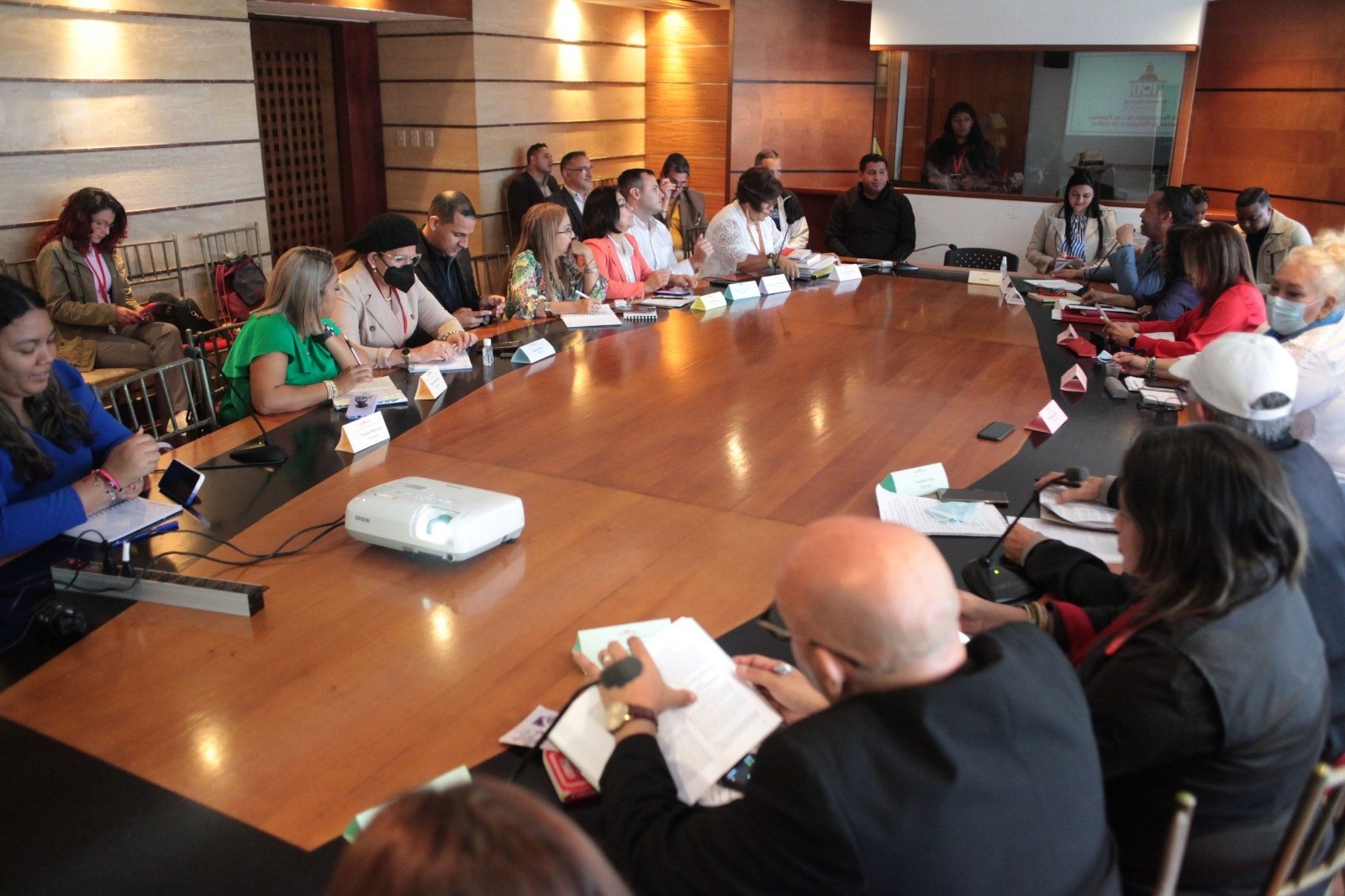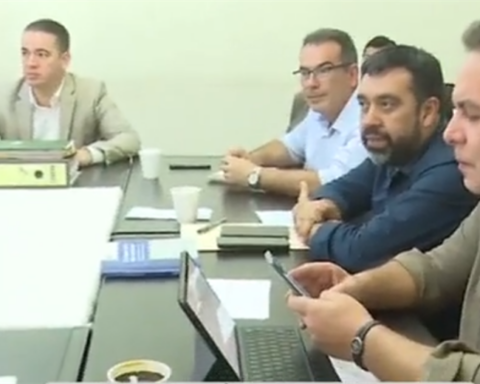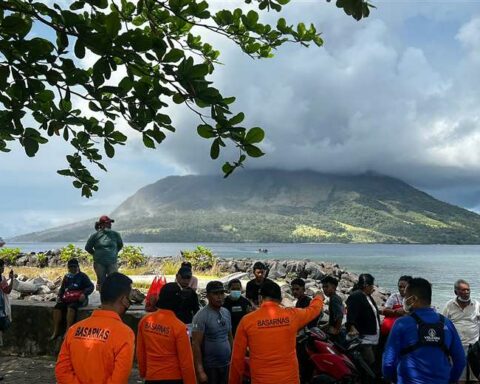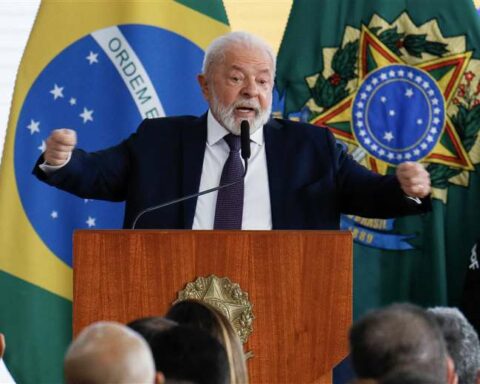June 1, 2023, 7:00 PM
June 1, 2023, 7:00 PM
The boat crosses from Bolivia through the Desaguadero River full of products. There is only one man, who is like a kind of “captain” of the boat. He unloads the packages himself and delivers them to another person. In this merchandise are quintals of rice, noodles and sugar, all produced in Bolivia. The deal was sealed on that improvised beach and the boatman returned to Bolivian territory, meeting other “colleagues” who brought other types of merchandise to Peru, such as chicken and pork meat and eggs. There are others that specialize in carrying fuel.
These types of illegal actions are experienced daily in Desaguadero, the binational municipality that separates Bolivia from Peru. Throughout this area there are 12 illegal routes through which the mafias dedicated to smuggling operate, avoiding military controls. The Vice Minister of the Fight Against Smuggling, General David Vargas, himself pointed out that mafias operate on the border with Peru and that ant smuggling is seen in fewer numbers.
“Today, smuggling is already acting like a criminal organization, it has elements of shock and armed forces, apart from that it has a whole network of informants that are in different institutions,” Vargas admitted. The authority stressed that there are “family clans” that operate in both nations –and also on other borders of the country, such as with Chile- and that are organized with the communities so that the control is annulled.
General Vargas lamented that “in many cases, both in Yacuiba, Bermejo, and Villazón, these smugglers are organized in well-established unions.” In the same way, their ingenuity and creativity -said the authority- to pass products without permits across borders has been energized over the years.
“The passenger transport buses have become the transport of contraband goods. They are no longer interested in passengers, the important thing is to fill the buses with a large amount of merchandise and on top of that, carry about ten passengers, the rest is contraband,” said the vice minister.
In the case of the border with Peru, Vargas reported that in the current situation double control work is carried out due to the illegal passage of basic Bolivian products to the Peruvian side. The vice minister gave as an example the seizure of eggs that as of today were put up for sale at different points of the Food Production Support Company (Emapa).
There are videos of residents of Desaguadero that show how these mafias operate. They pass the merchandise in boats, buses and even on foot. On the Peruvian side, specifically in Desaguadero, they concentrate the products and take them to other towns in the neighboring country, such as Puno, Juliaca, Moquegua and Ilo. It is that in Peru these products have a higher value.
For example, a 30-egg maple that in the city of La Paz can cost between 26 and 30 bolivianos, and on the Peruvian side is sold for more than Bs 42. The quintal of rice, which costs an average of 230 bolivianos in the markets of the seat of government, in Peru it is sold for more than Bs 300. Sugar, which is priced between 200 and 220 bolivianos, in the neighboring country is sold for Bs 320.
Fuels are also on this list, products that are most valued on Peruvian soil. EL DEBER verified in November of last year that a bottle of Liquefied Petroleum Gas (LPG), which in the domestic market costs 22.50 bolivianos, in districts of Peru it can cost 80 bolivianos. The same happens with gasoline and diesel, which in Peruvian territory triples its value.
In the streets of Desaguadero, on the Peruvian side, they invade the informal stalls selling fuel. They offer gasoline and diesel in four-liter drums. The same happens with LPG bottles, which are offered even in the markets without any type of control. For example, in the Juliaca market it was found that a carafe, with the inscription Yacimientos Petrolíferos Fiscales Bolivianos (YPFB), cost 85 bolivianos.
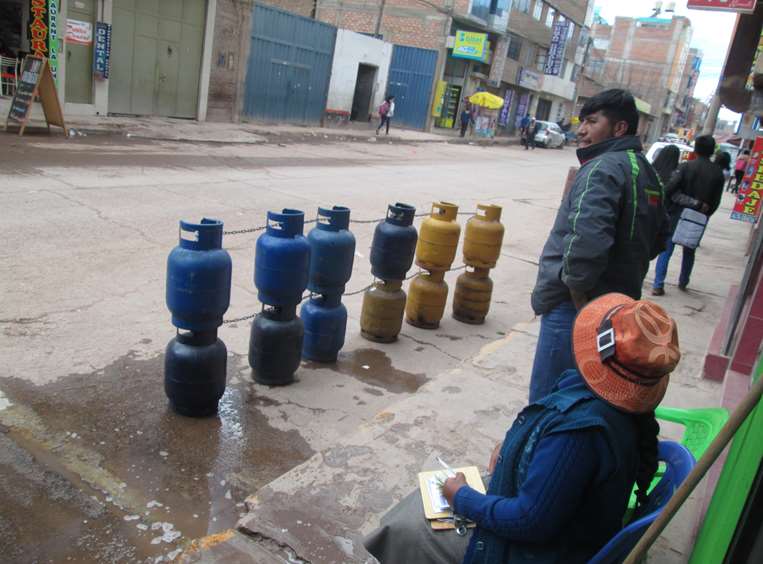
In the Puno Prosecutor’s Office they identified that the smuggling mafias decided to transfer their operations to areas with less population to avoid controls. That is why now this merchandise goes to Bolivia from the north of Lake Titicaca and also -but in less quantity- from Amazonian localities, such as the district of Puerto Maldonado.
From January to May 10 of this year, 151,614 liters of diesel were seized and 11,840 liters of gasoline that were diverted for contraband, Vargas reported. “The largest amount of fuel is in the department of La Paz, with 141,000 liters that were confiscated, which gives us the data that there is a greater amount of contraband destined for the black market that goes to illegal mining,” the authority detailed.
Meanwhile, the Vice Minister of User and Consumer Defense, Jorge Silva, revealed that there are currently 12 illegal points through which smuggling mafias smuggle their products to Peruvian soil. “Work is being carried out together with the Armed Forces of intervention in the border area with Peru. 12 points were identified where merchandise would be leaving, especially food and fuel. A strategic plan was worked out that will be implemented through greater control by the Army and the different authorities, ”he explained.
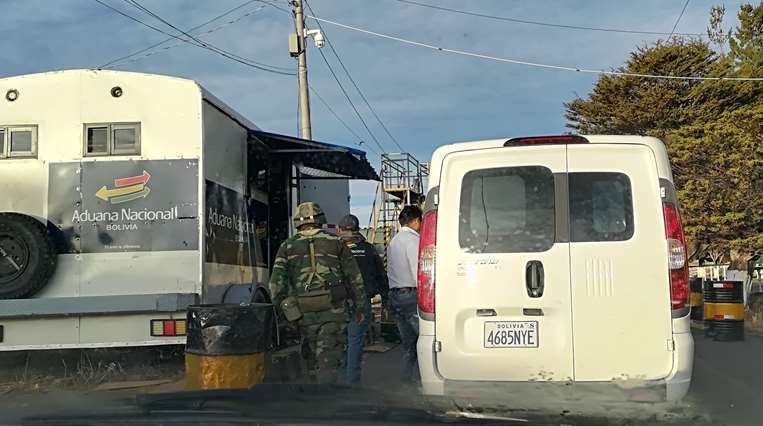
Within the framework of the Plan to Fight Contraband promoted by the Government, trenches were dug and access to illegal docks built on the Bolivian side was disabled for the smuggling of food and fuel to and from Peru through the Desaguadero River.
One of the destroyed docks is known as La Carroñera. This is a clandestine pier that community members built in 2021 on the banks of the Desaguadero River and which was used to smuggle illegal merchandise to and from Peru. High-tonnage trucks with a variety of illegal products operated at this dock.


